Asking Big Questions
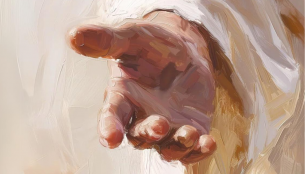
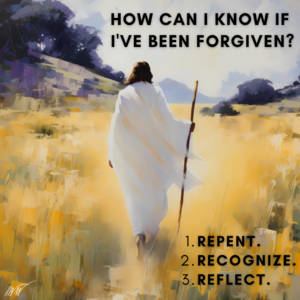 Going to the Savior, Peter asked, “How oft shall my brother sin against me, and I forgive him? Till seven times?” Jesus responded, “I say not unto thee, Until seven times: but, Until seventy times seven” (Matthew 18:21–22). Just as we are commanded to forgive others, our merciful Heavenly Father promises to forgive us. Although we may understand this promise, it can be difficult to know if we’ve been forgiven. Three actions can help us feel God’s forgiveness: repenting, recognizing the Spirit, and reflecting on Jesus Christ.
Going to the Savior, Peter asked, “How oft shall my brother sin against me, and I forgive him? Till seven times?” Jesus responded, “I say not unto thee, Until seven times: but, Until seventy times seven” (Matthew 18:21–22). Just as we are commanded to forgive others, our merciful Heavenly Father promises to forgive us. Although we may understand this promise, it can be difficult to know if we’ve been forgiven. Three actions can help us feel God’s forgiveness: repenting, recognizing the Spirit, and reflecting on Jesus Christ.
Repent
In Mosiah 26:30, the Lord gave beautiful instruction to Alma, teaching that “as often as my people repent will I forgive them their trespasses against me.” Because we are promised that we are always forgiven once we repent, we can know we have been forgiven—as long as we understand what repentance really is.
President Dallin H. Oaks defined repentance as “giving up all of our practices—personal, family, ethnic, and national—that are contrary to the commandments of God.”[1] As we make small changes in our life to become more aligned with God’s will, we are repenting!
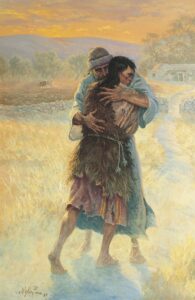 Typically, repentance follows a pattern where we recognize we did something wrong, sincerely desire to change, do our best to make things better, and ask for forgiveness from God and others we may have wronged. Preach My Gospel teaches that “through repentance, we develop a fresh view of God, ourselves, and the world. We feel anew God’s love for us as His children—and our Savior’s love for us.”[2] When we feel God’s love as we repent, we can know that we have been forgiven and that our Heavenly Father wants us to stay close by His side.
Typically, repentance follows a pattern where we recognize we did something wrong, sincerely desire to change, do our best to make things better, and ask for forgiveness from God and others we may have wronged. Preach My Gospel teaches that “through repentance, we develop a fresh view of God, ourselves, and the world. We feel anew God’s love for us as His children—and our Savior’s love for us.”[2] When we feel God’s love as we repent, we can know that we have been forgiven and that our Heavenly Father wants us to stay close by His side.
Recognize
Recognizing the Spirit is another way we can know that we have been forgiven. President Henry B. Eyring said, “If you have felt the influence of the Holy Ghost today, you may take it as a sweet evidence that the Atonement is working in your life.”[3] The more in tune we become with recognizing the Spirit, the more frequently we can recognize the Spirit’s presence as an indication of our forgiveness.
Repentance is closely tied to having the Spirit in our life. Wilford Woodruff taught,
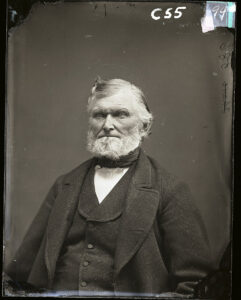 “There is need for us to repent and humble ourselves before the Lord our God, that we may have and enjoy more of the Holy Spirit to prepare us for that which lies before us.”[4]
“There is need for us to repent and humble ourselves before the Lord our God, that we may have and enjoy more of the Holy Spirit to prepare us for that which lies before us.”[4]
Recognizing feelings of peace, direction, comfort, and guidance can indicate that the Spirit is present in our lives and that God has accepted our repentance.
Reflect
The third way we can know and feel that we have been forgiven is by reflecting on our Savior Jesus Christ and His Atonement. Jesus Christ paid the price for all of our sins, making it possible for us to become clean again after we make mistakes. His Atonement is infinite, meaning it covers everyone that chooses to come to Him—and it covers us completely. Whether we make a minor mistake or commit a more serious sin, Jesus can cleanse us.
Sometimes we can get lost in guilt and shame, making it hard to feel like we’ve been forgiven. But as we reflect on God’s promises to us and understand the Savior’s infinite Atonement, we can feel peace and assurance that God will welcome us home. Wilford Woodruff testified of the Savior, “Again I wish to say to you my children, that I know that God lives, that Jesus Christ is the Son of God and the Savior of the world, and he shed his blood to redeem us from death.”[5]
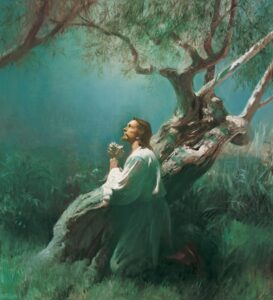 As we sincerely repent, recognize the spirit, and reflect on Jesus Christ and His Atonement, we can know and feel that God has forgiven us. It is all because of Jesus Christ that we can be forgiven, a powerful gift given from the ultimate sacrifice of love.
As we sincerely repent, recognize the spirit, and reflect on Jesus Christ and His Atonement, we can know and feel that God has forgiven us. It is all because of Jesus Christ that we can be forgiven, a powerful gift given from the ultimate sacrifice of love.
 Kamryn Maughan is studying Family Life at Brigham Young University. She joined the Wilford Woodruff Papers and was drawn to its mission to deepen and strengthen faith through President Woodruff’s documents and history. Kamryn has a big, loving family who she recently reunited with after serving in Oklahoma as a missionary for The Church of Jesus Christ of Latter-day Saints. She loves hiking, playing card games, and watching movies with her family and friends.
Kamryn Maughan is studying Family Life at Brigham Young University. She joined the Wilford Woodruff Papers and was drawn to its mission to deepen and strengthen faith through President Woodruff’s documents and history. Kamryn has a big, loving family who she recently reunited with after serving in Oklahoma as a missionary for The Church of Jesus Christ of Latter-day Saints. She loves hiking, playing card games, and watching movies with her family and friends.
Endnotes
[1] Dallin H. Oaks, “Repentance and Change,” October 2003 general conference, ChurchofJesusChrist.org.
[2] “The Gospel of Jesus Christ,” Preach My Gospel, p. 67, ChurchofJesusChrist.org
[3] Henry B. Eyring, “Our Constant Companion,” October 2023 general conference, ChurchofJesusChrist.org.
[4] Discourse by Wilford Woodruff, October 9, 1874, p. 1, The Wilford Woodruff Papers, wilfordwoodruffpapers.org/discourse/1874-10-09.
[5] Letter from Wilford Woodruff to Asahel Hart, Clara Martisha, Abraham Owen, Winnifred Blanche, and Mary Alice Woodruff, February 1, 1877, p.1, The Wilford Woodruff Papers, wilfordwoodruffpapers.org/letter/1877-02-01.
The Wilford Woodruff Papers Foundation’s mission is to digitally preserve and publish Wilford Woodruff’s eyewitness account of the Restoration of the gospel of Jesus Christ from 1833 to 1898. It seeks to make Wilford Woodruff’s records universally accessible to inspire all people, especially the rising generation, to study and to increase their faith in Jesus Christ. For more information, visit wilfordwoodruffpapers.org.
